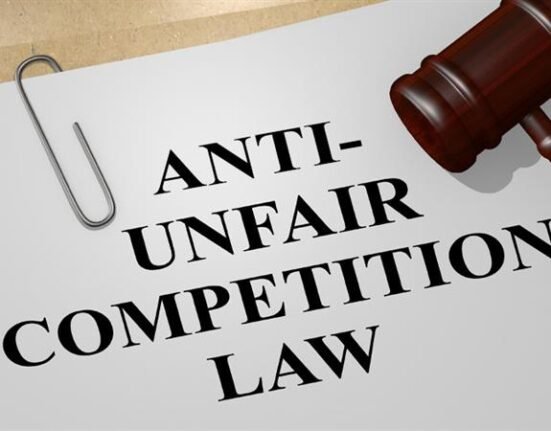December 8, 2023
2023-2035
Vietnam National Assembly passes top-up CIT in accordance with GloBE Model Rules
|
On 29 November 2023, the National Assembly passed a Resolution on the application of top-up corporate income tax (CIT) in accordance with the global anti-base erosion (GloBE) Model Rules. The Resolution takes effect from 1 January 2024, applying from fiscal year 2024.
Taxpayers subject to this tax are constituent entities (CE) of multinational enterprise (MNE) with revenue in the consolidated financial statements of the ultimate parent entity equivalent to €750m or more for at least two of the four years preceding the fiscal year, except for certain regulated exclusions.
How to determine Qualified Domestic Minimum Top-up Tax
The CE or a group of CEs of the MNE that are within scope and have business activities in Vietnam during the fiscal year must apply the Qualified Domestic Minimum Top-up Tax (QDMTT) regulations. If a CE, or a group of CEs, in Vietnam has income according to GloBE Rules and the effective tax rate in Vietnam is below the minimum tax rate, the QDMTT in Vietnam shall be determined as follows:
- Substance-based Income Exclusion is calculated as 5% of the total annual average tangible asset value and 5% of the total payroll costs of all CEs in Vietnam. In the transitional period from 2024, the values of tangible assets and payroll to be excluded for each year are provided in the Appendix promulgated with the Resolution, starting from 9.8% and 7.8% for tangible assets and payroll costs, respectively, and reducing annually.
- De minimis exclusion: The QDMTT will be determined to be nil in a fiscal year if the CE, or a group of CEs, in the related fiscal year satisfies the following conditions.
- The average GloBE revenue in Vietnam is less than €10m
- The average GloBE income in Vietnam is less than €1 million or there is a loss
How to determine tax in accordance with the Income Inclusion Rules (IIR)
An ultimate parent entity, partially owned parent entity, or intermediary parent entity in Vietnam that is a CE meeting the taxpayer regulations under the above provisions and directly or indirectly holds ownership (at any time during the fiscal year) of a CE subject to low tax rates abroad (Low-Taxed CE) in accordance with the GloBE Rules shall declare and pay tax in accordance with the IIR corresponding to the allocable share of the top-up tax under the GloBE Rules of the Low-Taxed CE during the fiscal year, unless the top-up tax has been given priority to be paid in another jurisdiction under the GloBE Rules.
- The Substance-based Income Exclusion is calculated as 5% of the total annual average tangible asset value and 5% of the total payroll costs of all CEs in a jurisdiction according to GloBE Rules. In the transitional period from 2024, the values of tangible assets and payroll to be excluded for each year are provided in the Appendix promulgated together with the Resolution, starting from 9.8% and 7.8% for tangible assets and payroll costs, respectively, and reducing annually.
- De minimis exclusion: IIR in a jurisdiction will be calculated as zero in a fiscal year if the CE or a group of CEs in the related fiscal year satisfies the following conditions:
- The average GloBE Revenue in this jurisdiction is less than €10m
- The average GloBE Income in this jurisdiction is less than €1m or there is a loss
Tax declaration and payment
|
Declarations to be filed |
|
|
Deadline for tax declaration and payment |
|
|
Determining the Filing CE |
|
|
Exchange Rate |
|
|
Others |
|
|
Transitional safe harbor |
Applicable for fiscal years beginning on or before 31 December 2026 but not including a fiscal year that ends after 30 June 2028 The amount of top-up tax in a jurisdiction for a fiscal year will be considered nil when one of the following criteria is met:
During the transition period, there shall be no administrative tax penalties for violations of filing and submission of the above-mentioned declaration and explanation forms. |
Investment support policy
Also on 29 November 2023, the National Assembly passed a Resolution of the 6th session, the XV National Assembly. Accordingly, the National Assembly resolved:
Agree in principle and assign the Government in 2024 to develop a draft Decree on the establishment, management and use of the Investment Support Fund from global minimum tax revenues and other lawful sources to stabilize the investment environment, encourage and attract strategic investors, MNEs and support domestic enterprises in a number of sectors that need investment promotion, and to report to The Standing Committee of the National Assembly for comments before promulgation. At the same time, the overall review shall be conducted to synchronously complete the system of policies and laws on investment promotion, meeting the requirements of national development in the new context.
This content reflects the direction of the National Assembly and the Government on developing new investment incentives policies, replacing tax incentives that will no longer be effective in practice.
Recommended action plan
Considered the CIT policy development, investors will want to consider promptly undertaking the following actions:
- Confirm whether the enterprise falls within the scope of application
- Evaluate and estimate the tax implications
- Explore opportunities to mitigate the impacts and create an action plan
- Collaborate with the Parent Company to be ready for compliance
- Identify and organize necessary data
- Assess the current system’s capacity to implement BEPS 2.0
———————————————
For additional information with respect to this Alert, please contact the following:
Ernst & Young LLP Vietnam, Ho Chi Minh City
Ernst & Young LLP Vietnam, Hanoi
Ernst & Young LLP (United States), Vietnam Tax Desk, New York
Ernst & Young LLP (United States), ASEAN Tax Desk, New York
Published by NTD’s Tax Technical Knowledge Services group; Carolyn Wright, legal editor







